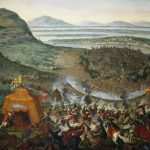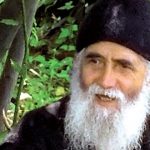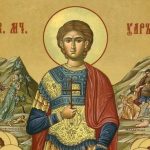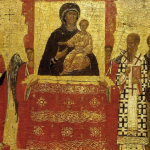Until relatively recently writes Jacob Fareed Imam, what we call Islam today was most often called "Mohammedanism." Islam was understood for centuries as a Christian heresy, a definition that began with St. John of Damascus (d.749) in his work "Heresies" and continued well into modernity. "All great heresies are known by their founders (e.g., Marcionism, Arianism, Nestorianism, … [Read more...] about Not Merely Islam: C.S. Lewis Assesses the Religion of Mohammed
History & Tradition
Closer Than My Own Father: Elder Paisios and His Spiritual Children, Parts I & II
Can we faithfully and with any confidence transpose the life of St Anthony the Great, of St John Chrysostom, of St Gregory Palamas onto a subway car in Manhattan, or a park bench in Cedar Rapids? What would it be like to live a fully Christian life, here and now, in the twenty-first century? What would a truly Christian life look like in our time—the life of an authentic … [Read more...] about Closer Than My Own Father: Elder Paisios and His Spiritual Children, Parts I & II
“Pray for Our Loved Ones who Are Beyond!”: Canon of Supplication to St Varus
The Orthodox Church considers prayers for the dead to be of the greatest importance. As stated by St Theophen the Recluse: “The lot of the departed is not considered decided until the general Last Judgment. Until then, we cannot consider anyone as finally judged; and on the basis of this we pray, convinced in our hope in God’s immeasurable mercy!” But what … [Read more...] about “Pray for Our Loved Ones who Are Beyond!”: Canon of Supplication to St Varus
How Not To Be An Accidental Iconoclast
The Triumph of Orthodoxy, which we celebrate on the first Sunday of Lent, entails both an affirmation and a negation. It commemorates the restoration, in the year 787, of icons to Orthodox temples and homes, and at the same time it commends what the Seventh Ecumenical Council called their “veneration and honor (timitiki proskynisis)” while reserving their "real … [Read more...] about How Not To Be An Accidental Iconoclast
Calculating the Date of Christmas: Why We Celebrate the Nativity Feast on December 25
It is sometimes believed that we celebrate Christ’s birth on December 25th because the Church Fathers appropriated the date of a pagan festival. But in fact, just the opposite is true. The choice of December 25th was based not on pagan festivities, but on a careful chronology of sacred events concerning the Incarnation of our Lord. Ironically, it was the pagan festival … [Read more...] about Calculating the Date of Christmas: Why We Celebrate the Nativity Feast on December 25




